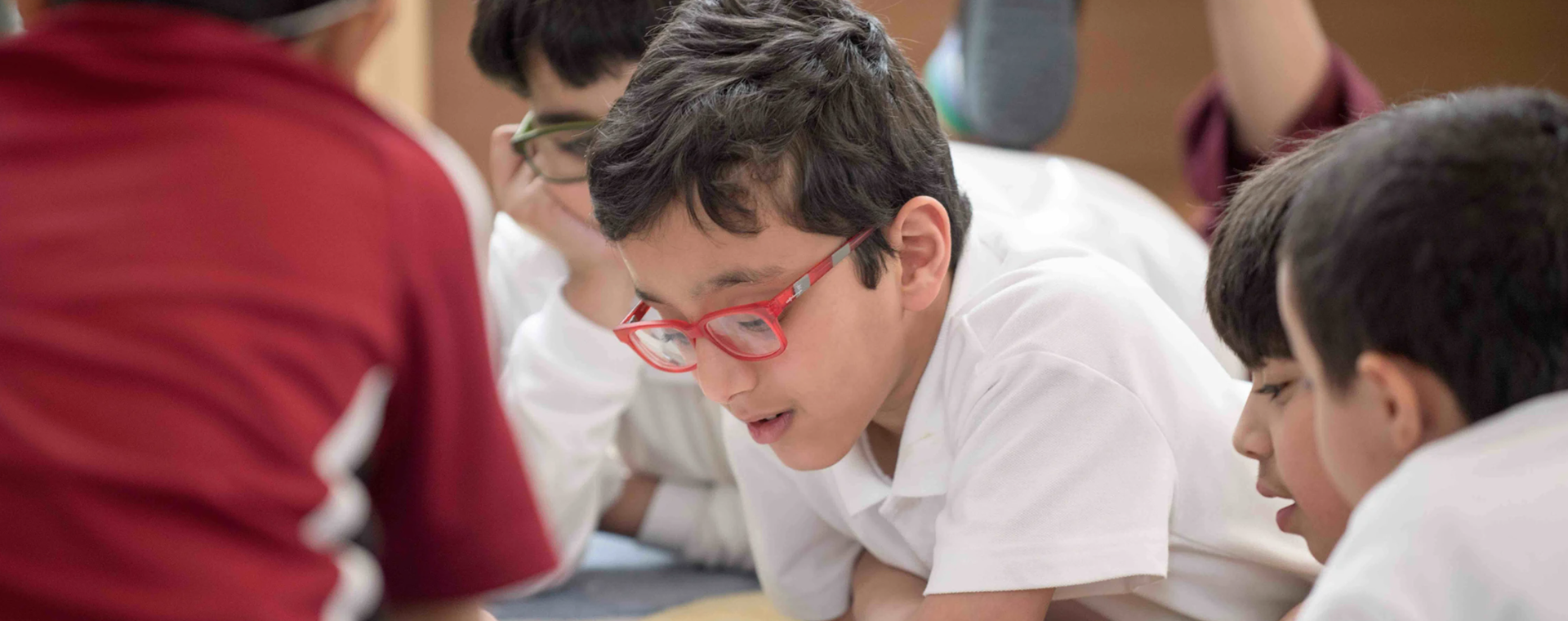
Online event with Salzburg Global Seminar brings together international education experts to discuss COVID-19 responses and opportunities.
Education systems around the world should use the coronavirus pandemic as an opportunity to constructively build for the future and focus on “resilience, innovation, and social cohesion”, an online conference organized by Qatar Foundation’s global education think tank has heard.
The virtual gathering held by the World Innovation Summit for Education (WISE), in partnership with Salzburg Global Seminar, saw education experts from around the world share their experiences and insights on the responses of their schools, universities, and organizations to the COVID-19 pandemic.
Titled Education Disrupted, Education Reimagined, the two-day conference has featured sessions designed to provide better understanding of the challenges education systems are currently facing, and be a platform for exchanging ideas and practices across different education systems on short- and medium-term responses to the disruption caused by the pandemic. It has also aimed to spark a global conversation on how education can be shaped and refined to adapt when a “new normal” emerges.
Speaking about global education’s response to coronavirus and the next steps in its approach to facing the crisis, Stavros N. Yiannouka, CEO of WISE, said: “We are all in the early stage of the COVID-19 crisis and, amid this situation, we definitely need to think anew.
“There are several key factors in helping us to fight this battle and move to the next steps, starting with resilience. We must build our futures around resilience, both for our education systems and for the individuals within them.
“Humanity’s greatest evolutionary advantage has been its ability to collaborate flexibly in very large numbers across time and place.”
– Stavros N. Yiannouka
“The next is innovation – it’s no longer optional; it has to become a core competency in order to move forward. Finally, there is social cohesion, because we cannot flourish in isolation. Humanity’s greatest evolutionary advantage has been its ability to collaborate flexibly in very large numbers across time and place. Our future must include active steps to bring the world together politically, culturally, socially, and economically.”
Dr. Gregory Moncada, Director of Qatar Academy for Science and Technology (QAST) – part of Qatar Foundation’s Pre-University Education – explained the practical steps that the school took in response to the pandemic, saying: “As a practitioner in the field of education for about 25 years, and from force majeure events which I have faced, the main point I would make is that you can never be ready, but you can be current.
“As a new and relatively small school, we had the advantage of being agile, so ahead of the crisis we ensured our accessibility to various sources of information which kept us current and helped us decide on the necessary steps that we should apply in our school. We made sure teachers are able to utilize the virtual tools they are working with, and that our students are able to receive information and have a safe learning environment.
“We applied engaging methods in the learning experience by challenging students to find solutions to real problems.”
– Dr. Gregory Moncada
“We also communicated with parents and gave them notice about the possibility of shifting to online learning. By helping them anticipate the next steps, it made the transition much smoother.”
Dr. Moncada explained that QAST conducted a survey three days after introducing virtual learning, which produced insights on how to maximize students’ time. “We shifted from the concept of daily timetables, which focus more on work volume, into more engaging methods and more focus on students’ wellbeing, which lifted the pressure and anxiety of doing things within deadlines,” he said.
“We applied engaging methods in the learning experience by challenging students to find solutions to real problems facing countries, medical systems, and other areas – for instance, we utilized our 3D printers for a task where we asked students to develop a mask solution for the current crisis. We involved them in the process of finding solutions, rather than them feeling traumatized by this unanticipated situation.”
Experts participating in the virtual conference described the COVID-19 crisis as an opportunity for education systems to refine and revamp current models, and discover new aspects of the learning experience that allow more space for creativity, emotional support, and community building.
In his keynote speech opening the event, Vishal Talreja, Co-Founder and Trustee of Dream a Dream – a charitable trust in India that helps children and young people from vulnerable backgrounds to flourish – said: “A crisis like this is an invitation to pause for just a moment longer and respond with the answer that will emerge.” Meanwhile, Agustin Thienen, CEO of Argentina-based education platform OX, said: “Each one of us, in our own roles, has had to make so many changes in so little time and cope with everything that’s happening – let’s press pause, understand what we’re feeling, and move forward with what we’re feeling.
“Let’s clap for teachers, but after this, let’s ask what we can do further to empower them in their roles.”
– Agustin Thienen
“Let’s clap for teachers, but after this, let’s ask what we can do further to empower them in their roles.”
The event has drawn participants from countries including the US, the UK, Canada, Australia, China, France, South Africa, India, and Kenya, as well as Qatar, with its second day featuring a special session on UN agencies’ education-focused response to COVID-19.
This article was orginally published on Qatar Foundation.


